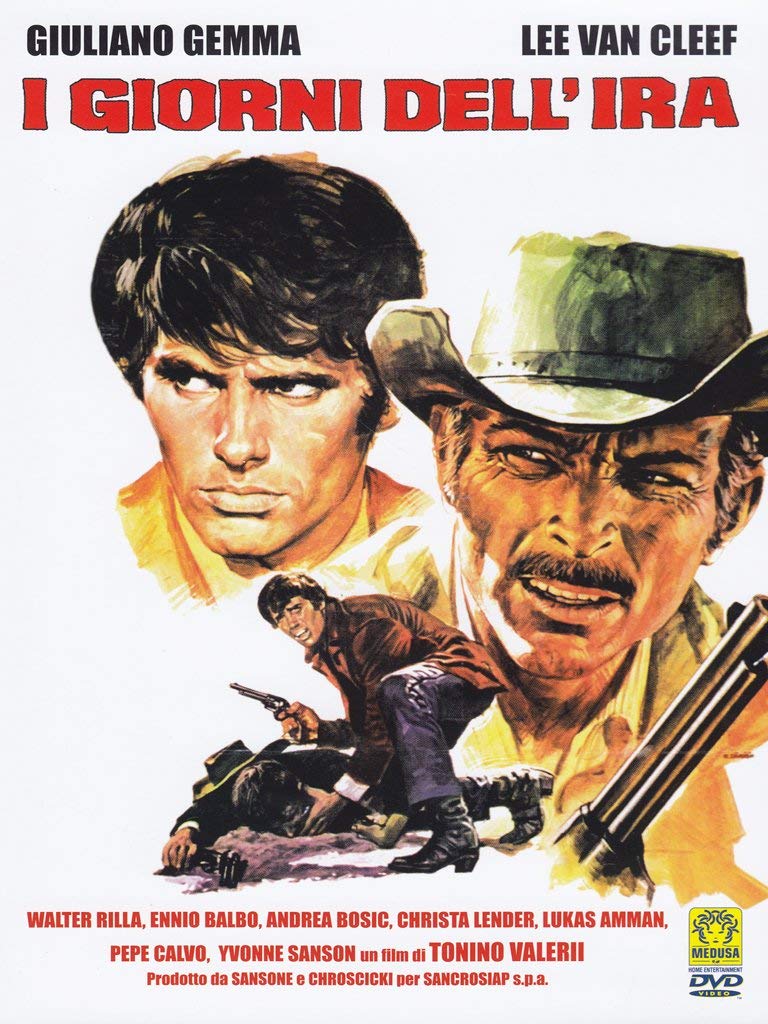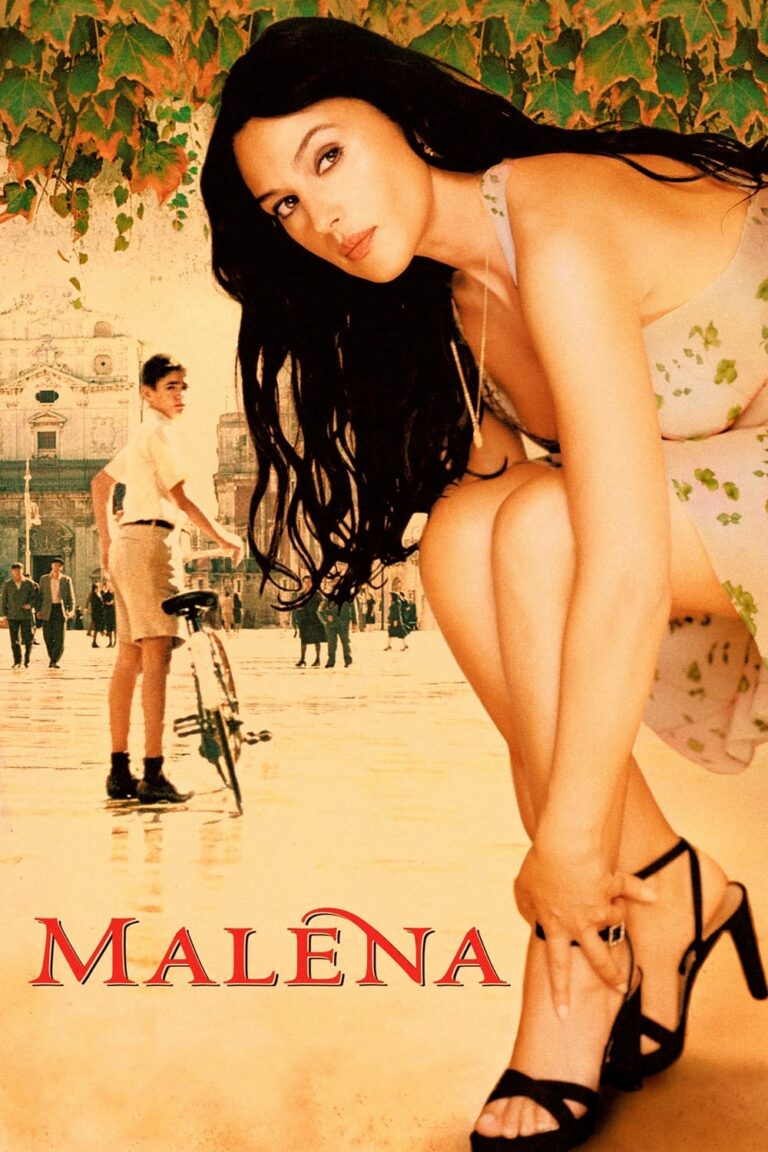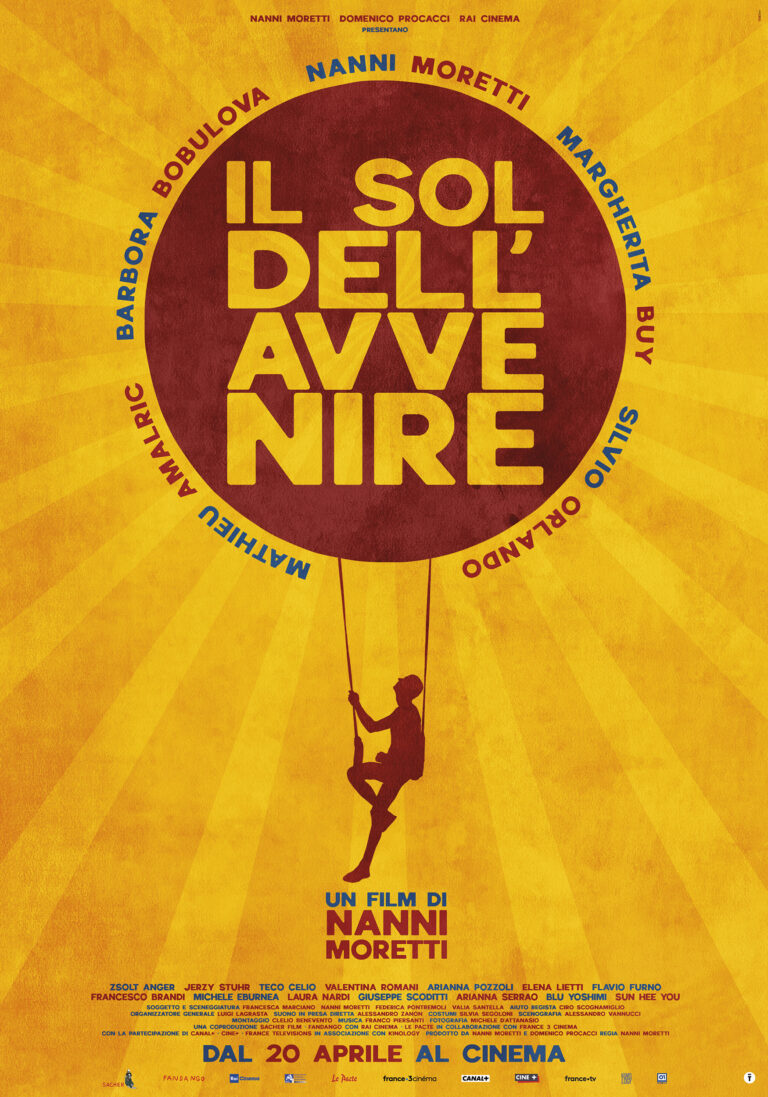
The 1960s marked the golden age of Spaghetti Westerns, and among the numerous classics to emerge from this era, Tonino Valerii’s Day of Anger (I Giorni dell’Ira) stands tall. Released in 1967, the film stars Lee Van Cleef and Giuliano Gemma in a gritty tale of revenge, mentorship, and morality. Packed with action, philosophical depth, and unforgettable performances, Day of Anger remains a cornerstone of Italian Western cinema.
Plot Synopsis
Set in the small, dusty town of Clifton, Day of Anger introduces us to Scott Mary (Giuliano Gemma), a downtrodden young man who works as a street sweeper. Constantly ridiculed by the townsfolk, Scott dreams of a better life, but his aspirations seem out of reach—until the arrival of the enigmatic gunslinger Frank Talby (Lee Van Cleef). Talby takes Scott under his wing, teaching him the ways of the gun and the rules of survival in a harsh world.
As Scott grows in confidence and skill, he begins to challenge the social order that once oppressed him. However, Talby’s teachings come with a price, and Scott soon finds himself grappling with questions of loyalty, morality, and the true cost of power.
Historical Context
The Spaghetti Western genre emerged in the 1960s as a gritty, morally complex alternative to traditional Hollywood Westerns. Unlike their American counterparts, Spaghetti Westerns often featured antiheroes, bleak landscapes, and stark depictions of violence. Directors like Sergio Leone and Ennio Morricone elevated the genre to an art form.
Day of Anger occupies a unique place within this tradition. Directed by Tonino Valerii, a protégé of Leone, the film blends thrilling gunfights with introspective character arcs, making it both entertaining and thought-provoking. Its exploration of mentorship and revenge sets it apart from more straightforward Westerns of the time.
Themes Explored in the Film
Day of Anger delves into several enduring themes:
- Revenge and Power: The film examines the intoxicating allure of power and the destructive potential of vengeance.
- Mentorship and Influence: Talby’s guidance transforms Scott, but it also raises questions about the morality of his teachings.
- Morality in a Lawless World: The film portrays a society where traditional notions of justice are absent, forcing characters to define their own moral codes.
Main Characters and Performances
The film’s characters are richly drawn, and the performances bring them vividly to life:
- Scott Mary (Giuliano Gemma): Scott’s transformation from a meek outcast to a confident gunslinger is the heart of the story. Gemma captures both the vulnerability and the determination of his character, delivering a performance that resonates with viewers.
- Frank Talby (Lee Van Cleef): Lee Van Cleef, already a Spaghetti Western icon thanks to The Good, the Bad, and the Ugly, shines as Talby. His commanding presence and nuanced performance make Talby a complex mentor figure, both inspiring and morally ambiguous.
Director Tonino Valerii
Tonino Valerii’s direction infuses Day of Anger with a sense of style and depth. A former assistant to Sergio Leone, Valerii adopts some of Leone’s techniques—such as dynamic framing and tension-filled standoffs—while carving out his own narrative identity. His focus on character development and moral complexity sets the film apart from more action-driven Westerns.
Cinematography and Visual Style
The film’s cinematography is a feast for the eyes. The barren deserts and dusty streets of Clifton create a stark, unforgiving backdrop that mirrors the harshness of the characters’ lives. Close-up shots during gunfights heighten the tension, while sweeping vistas evoke the loneliness and isolation of the frontier.
Music and Soundtrack
Riz Ortolani’s haunting score is a highlight of Day of Anger. The music shifts between bombastic orchestral themes and quieter, more introspective moments, perfectly complementing the film’s emotional beats. Ortolani’s work elevates the film, making it as memorable for its sound as it is for its visuals.
Moral and Philosophical Questions
Day of Anger challenges viewers with complex moral questions:
- Can vengeance ever lead to justice, or does it only perpetuate violence?
- How does mentorship shape a person’s character, and what are the consequences of misguided teachings?
- Is power worth pursuing if it comes at the cost of one’s humanity?
These questions linger long after the credits roll, making the film more than just a Western—it’s a meditation on human nature.
Reception and Legacy
Upon its release, Day of Anger was praised for its strong performances, gripping story, and stylish direction. Over time, it has gained a cult following, celebrated as one of the finest Spaghetti Westerns ever made. The film’s influence can be seen in later Westerns, including Quentin Tarantino’s Django Unchained.
Comparison with Other Spaghetti Westerns
While Day of Anger shares certain traits with classics like A Fistful of Dollars and Once Upon a Time in the West, it distinguishes itself through its focus on character relationships. The dynamic between Scott and Talby adds emotional depth, making it more than just a tale of gunfights and revenge.
Symbolism in the Film
The film is rich with symbolism:
- The Gun: A symbol of power, freedom, and destruction, the gun represents Scott’s transformation but also his moral decline.
- The Town of Clifton: The oppressive environment of the town serves as a microcosm of societal injustices.
- The Mentor-Student Relationship: Talby and Scott’s relationship symbolizes the dual nature of mentorship—both empowering and potentially corrupting.
Character Transformation
Scott Mary’s journey is one of the most compelling aspects of Day of Anger. From a powerless outcast to a feared gunslinger, his evolution is both inspiring and tragic. His story serves as a cautionary tale about the cost of ambition and the dangers of losing oneself in the pursuit of power.
Cultural Impact
Day of Anger reflects the societal attitudes of the 1960s, particularly the disillusionment with authority and the quest for individual empowerment. Its themes remain relevant today, resonating with audiences who grapple with questions of morality and justice in an increasingly complex world.
Frequently Asked Questions (FAQs)
1. What is the meaning of the title Day of Anger?
The title reflects the central themes of revenge and the explosive consequences of bottled-up rage.
2. Who composed the music for the film?
Riz Ortolani composed the film’s memorable score.
3. How does Day of Anger compare to other Spaghetti Westerns?
While it shares stylistic elements with films by Sergio Leone, its focus on mentorship and morality sets it apart.
4. Where was the film shot?
The movie was filmed in Almería, Spain, a popular location for Spaghetti Westerns.
5. What lessons does Scott Mary learn?
Scott learns the complexities of power, the dangers of vengeance, and the need for self-reflection.
6. Is Day of Anger based on a novel?
No, the film is an original story, though it draws inspiration from Western tropes and archetypes.
Conclusion
Day of Anger (I Giorni dell’Ira) is a masterful blend of action, drama, and moral inquiry. With stellar performances, a gripping narrative, and timeless themes, it remains a shining example of Spaghetti Western cinema. Whether you’re a fan of Westerns or a newcomer to the genre, this film is a must-watch.





